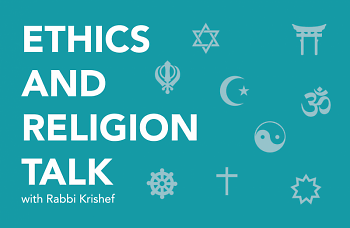The Rev. Rachel J. Bahr, pastor of Plymouth UCC, responds:
“I’ve learned an incredible amount about digital film production and editing. The value of a good mic, and green screen. As many went down the sourdough starter hole, I’ve started a ministry of making and breaking bread, bringing sourdough bread loaves to 6-7 households a week, as we talk six feet away through masks. My leadership team at Plymouth UCC are in the midst of working on a plan for hybridizing our community, creating equitable access for participation in the life of the congregation, whether folx are present in person or virtually. We will always have an online presence, and meetings will always be held both in-person and virtually. Until we are safe to sing, herd immunity by vaccine or otherwise, we will be pre-recording our Music Ministry any sung or wind instrument ministry. I’m hoping that we have learned that normal wasn’t working for many. There’s real opportunity for creativity and innovation, and I’m excited to see how we are transformed.”
Father Michael Nasser, who writes from an Eastern Christian perspective and is Pastor of St. Nicholas Orthodox Christian Church, responds:
“The word ‘church’ literally means those that are ‘called out’ and implies a gathering. The members of the Christian community being physically present with each other is so important that it partly defines who we are and not simply describes what we do. The understandable separation that was required by the pandemic was an enormous challenge, and practically everything we did before it had to be done differently. The pastoral changes included being part of engineering the ability to live stream services and trying to assist parishioners with how to participate as fully as possible in something that is still defined by a gathering. All in-person meetings and conversations were moved to telephone and teleconference. While we are so grateful for the ability to begin to turn back to in-person activity, we will try to maintain some of the technological connections, especially as they benefit the home-bound and those who live great distances from the church.”
Rev. Steven Manskar, pastor of Trinity United Methodist Church in Grand Rapids, responds:
“My role didn’t change. How I did my work changed a great deal. I could no longer meet people from the church or community face to face over a meal at a restaurant. Our weekly Bible study ended abruptly because the people in the group were not comfortable using a computer. Worship moved first to Facebook Live and then to Zoom. I now see their faces in little boxes on my computer screen in my home study from which I plan and lead worship every Sunday morning. I cannot embrace or shake hands with the people after the service. We no longer share conversation and coffee before and after worship. I cannot visit and pray with people in the hospital or their homes. And, because we cannot gather in person around the Lord’s Table or the font, we are exiled from the sacraments and the life they give.
“During the pandemic I became a preaching video producer. I had to learn about live-streaming, video, and sound production. One thing we will continue when this is over is live-streaming worship. We will also likely continue to use Zoom for business and committee meetings.”
Linda Knieriemen, Senior Pastor at First Presbyterian Church in Holland, responds:
“Ministry is incarnational. It is face to face, voice to voice, hand to hand, person to person. My role as pastor-preacher-teacher changed dramatically, shockingly, immediately. Social distancing and quarantine meant no hospital visits to support the sick, no vigils with the dying and their families, no house calls with the lonely. Thanks to my younger techno-native associate, a creative staff team and the Spirit’s inspiration we made an immediate shift to pre-filmed virtual worship which continues to evolve to be more personable, relevant, artistic every week. But it’s not the same!
“The necessity of committee meetings via Zoom have taught us that attendance improves when no one needs to travel. As much as it’s been successful,YouTube prerecorded worship illustrates that we attend church both for God and to be with one another. Yet, we’ve learned that choir members each singing at home, alone can be blended into one harmony thanks to computer software called Acapella. We’ve seen how artistic images enrich a sermon when shown on a split screen with the preacher. Covid-19 has brought the church surprising gifts which we’ll move with into the future. There is no going back to normal— only the next adventure. We have more tools at our disposal as we journey.”
This column answers questions of Ethics and Religion by submitting them to a multi-faith panel of spiritual leaders in the Grand Rapids area. We’d love to hear about the ordinary ethical questions that come up in the course of your day as well as any questions of religion that you’ve wondered about. Tell us how you resolved an ethical dilemma and see how members of the Ethics and Religion Talk panel would have handled the same situation. Please send your questions to [email protected].
The Rapidian, a program of the 501(c)3 nonprofit Community Media Center, relies on the community’s support to help cover the cost of training reporters and publishing content.
We need your help.
If each of our readers and content creators who values this community platform help support its creation and maintenance, The Rapidian can continue to educate and facilitate a conversation around issues for years to come.
Please support The Rapidian and make a contribution today.
